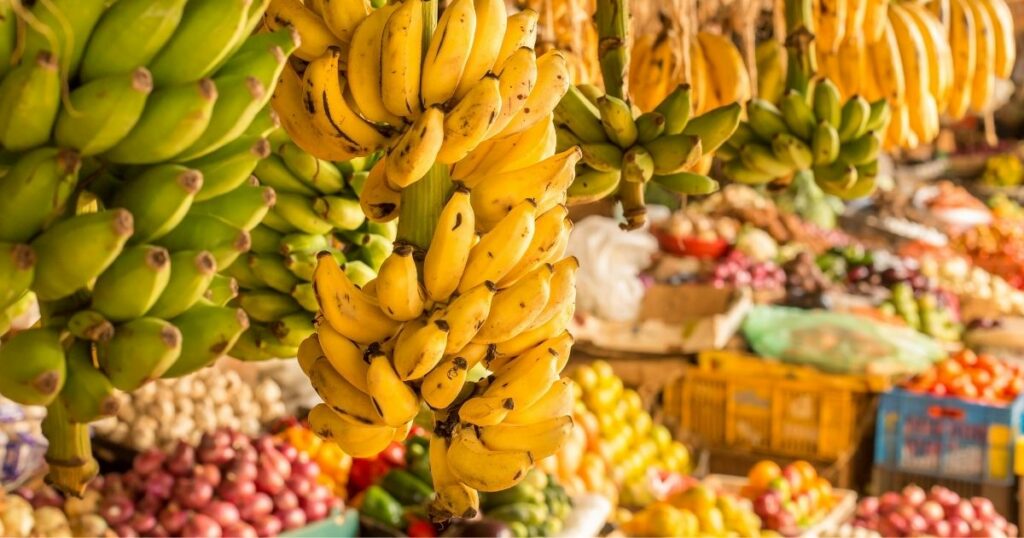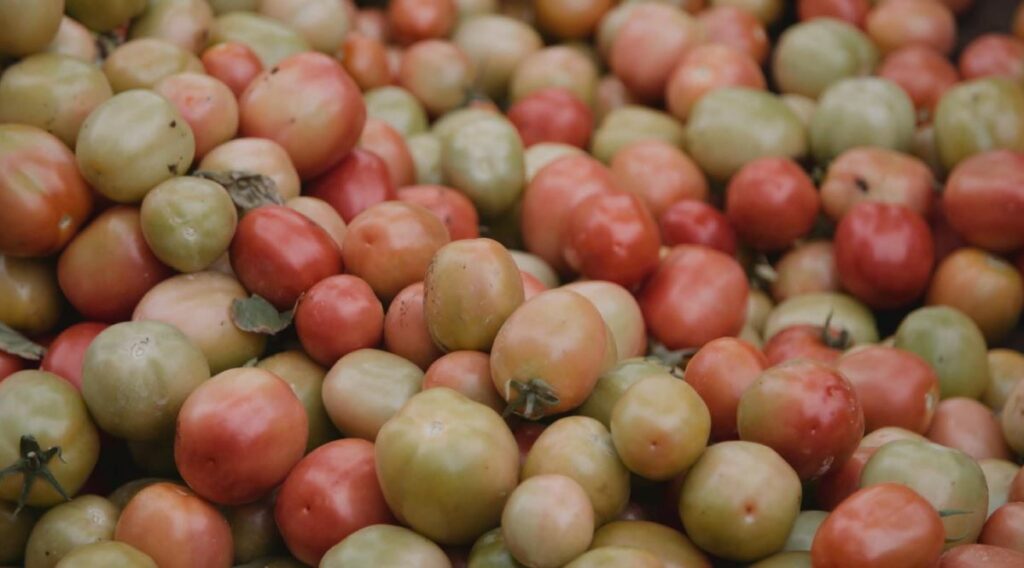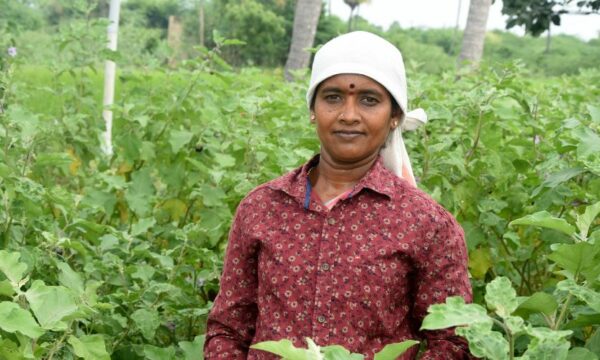Food safety is essential for food security. It is key to meeting many of the Sustainable Development Goals, particularly SDG2 ‘Zero Hunger’, SDG 3 ‘Good health and wellbeing’ and SDG 6 ‘Clean water and sanitation.
Safe food is also critical for economic development. Food-borne diseases can keep people from working and prospering and can negatively impact a country’s public health system and disrupt international trade.

Food safety and PlantwisePlus
Foodborne diseases result from the consumption of food that contains contaminants such as viruses, bacteria, parasites, chemical hazards, veterinary drugs (antibiotics), mycotoxins, and allergens. As such, addressing food safety issues and the governance of emerging technologies are inescapably and dynamically intertwined.
CABI’s new global PlantwisePlus programme is working to increase the supply of safer food through initiatives driven by women and youth, to meet the growing demand from consumers. The programme hopes to drive demand for higher quality food by highlighting issues related to unsafe food, particularly hazardous pesticide use, in food production. This shift in demand will encourage farmers to use low-risk farming practices, which will not only open up new markets to them but allow local communities to gain access to safer, healthier produce.
Food safety survey
As part of the PlantwisePlus programme, a consumer food safety survey was recently conducted in Kenya. The study’s aim was to better understand consumers’ knowledge, judgments, and practices related to food safety.
Recognising consumers’ knowledge, judgment and practices around food safety are essential to developing and implementing food safety policies. In addition, understanding consumer perceptions allows risk communication strategies to be created that address the food safety problem areas.
In recent years there has been a push for higher food safety standards in Kenya, driven by consumer awareness, lifestyle changes and income. Many consumers want to know the food they consume is safe and that quality and safety standards are being implemented at all stages of the food production value chain.

Survey’s focus
The survey focused on fruit and vegetable and looked at domestic markets and the domestic market food supply system. Perishable foods account for a large proportion of foodborne illnesses globally, due to bacteria, viruses, parasites, or chemical substances in the produce.
The study area covered regions that are important production areas for fruit and vegetables in the country, and those representing a high concentration of consumers.
The vast majority of survey respondents shopped at local, open-air markets, with the most important deciding factor being proximity to their home or workplace. Price was the second most significant reason for selecting where to buy produce. Only a few consumers gave vendor trustworthiness, a clean environment and organic produce as a reason by only a few consumers.
Supply chain and food safety
Many of the traditional food markets have limited food safety standards. Poor handling and hygiene can be found at all stages of the supply chain, including transportation, storage and preparation.
As part of the survey, growers were asked about their farming practices. Most of the respondents said that they used pesticides to control pests and that usage was based on their own knowledge and experience as well as recommendations from agro-dealers. This justifies consumer concerns about pesticide risks in their food.
At the farmer stage, food safety risks are mainly associated with the handling and use of chemicals. The type, amount and frequency of pesticide use can all lead to chemical substances entering food. The preharvest interval – the wait time between a pesticide application and when a crop can be harvested – must be adhered to. As should the maximum residue levels, which is the amounts of residues found in food for it to be safe for consumption. These should be as low as possible.
Consumer awareness
The survey showed that consumers are aware of what they can personally do to reduce risks in the food they eat. However, they are also aware of the risks at producer and market level, which are beyond their control.
PlantwisePlus is focusing on enhancing the availability of nature-positive and low-risk plant protection products to reduce the reliance on high-risk farm inputs. This will increase consumer demand for and supply to local markets of safer, higher quality and locally produced food. However, intermediaries may be required to build consumer confidence in the food available to them.
About PlantwisePlus
PlantwisePlus is a global programme, led by CABI, to increase incomes and grow safer and higher quality food through sustainable approaches to crop production.
Working in close partnership with relevant actors, PlantwisePlus strengthens national plant health systems from within, enabling countries to provide farmers with the knowledge they need to lose less and feed more.
CABI gratefully acknowledges the financial support of the Directorate General for International Cooperation (DGIS, Netherlands), the European Commission Directorate General for International Partnerships (INTPA, EU), the UK Foreign, Commonwealth & Development Office (FCDO), the Swiss Agency for Development and Cooperation (SDC), for the PlantwisePlus programme.
For more information visit: https://www.plantwise.org
Facebook: https://www.facebook.com/Plantwise
Twitter: https://twitter.com/CABI_Plantwise (@CABI_Plantwise)
Further reading
1 Comment
Leave a Reply
Related News & Blogs
CABI-led PlantwisePlus training to help increase livelihoods and greater food security in Papua New Guinea
Two international experts in crop and plant health from CABI have visited Papua New Guinea (PNG) to provide training in crop pests and disease which may help increase livelihoods and greater food security in the country. Agriculture is vital to PNG. It…
22 April 2024





This blog is very helpful for me